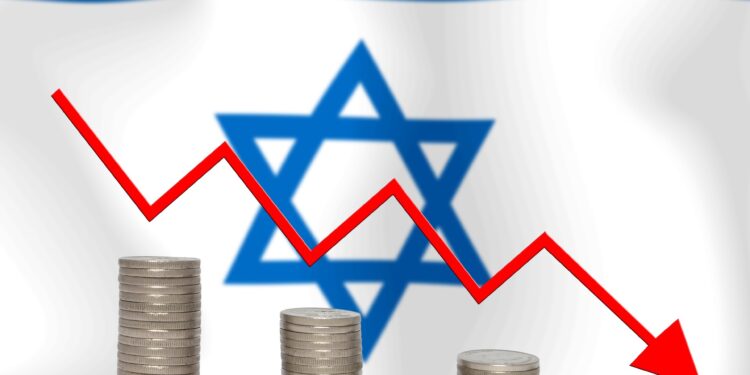The PricewaterhouseCoopers Israel Commercial Transactions Report for 2023 depicted a blurry reality full of challenges for the Israeli economy. The report indicated a decline of more than 46% in the value of commercial deals and a decline of 23% in the total number of these deals compared to the previous year.
According to the report – which was reported by the Jerusalem Post newspaper – the total value of commercial deals in the current year amounted to about $9.8 billion, which is its lowest level in 10 years, and represents a significant decrease compared to $18 billion in 2022.
The average value of deals decreased by 35% to reach $131 million this year compared to $202 million last year, while The number of mega deals – more than $1 billion – has declined, reflecting a shift towards lower-risk transactions.
The report indicates that the Israeli technology sector – which is the driving force of the economy – has not recovered, as foreign investments in this sector declined sharply to $6.7 billion, recording a decrease of about 41% compared to the year 2022.
This decline occurred even before the “Al-Aqsa Flood” operation carried out by the Al-Qassam Brigades, the military wing of the Islamic Resistance (Hamas), on October 7, after which Israel launched its war on the Gaza Strip, which indicates a cautious stance on the part of investors before these events.
PricewaterhouseCoopers Israel noted that transactions with foreign entities in Israel have actually decreased, indicating increasing investor concern.
The report monitors a scene characterized by a decline in mergers and acquisitions, which highlights the economic challenges that preceded the security tensions in recent months.
But the report came back and highlighted the importance of the high-tech sector in the Israeli business system, as it continued – despite the decline – to lead the local market for mergers and acquisitions in 2023, and constituted 81% of all deals.
The newspaper quoted the company’s head of transaction services, Liat Inzel Avil, as saying, “In the short term, in light of the escalation of security tension and the continuation of the war, we expect that the pressure on the local market will continue to be greater compared to global trends.”
She added, “Predicting the market’s long-term reaction is difficult and depends – among other factors – on the development of the security and political situation in Israel.”
The political unrest resulting from the controversial judicial reform plan has directly affected the Israeli economy, and these reforms have led to large protests since last January, raising concerns about corruption and destabilization of the economy, according to the newspaper.
The war on the Gaza Strip increased uncertainty in the Israeli market, in light of a security situation that the country has not witnessed for a long time.
300 senior Israeli experts have warned that the Israeli economy is going through a difficult time that requires immediate action to prevent further damage.
Economists sent a letter to Israeli Prime Minister Benjamin Netanyahu and Finance Minister Bezalel Smotrich, in which they wrote, “You do not understand the magnitude of the crisis that the economy is facing. You must act differently.”
The letter indicated that economists consider “a difficult time for the Israeli economy today, and measures must be taken to prevent major damage immediately.”
Among the signatories were Roni Hezekiah, former banking supervisor and accountant general, former banking supervisor Yair Avidan, and former Bank of Israel governor Jacob Frankel.



